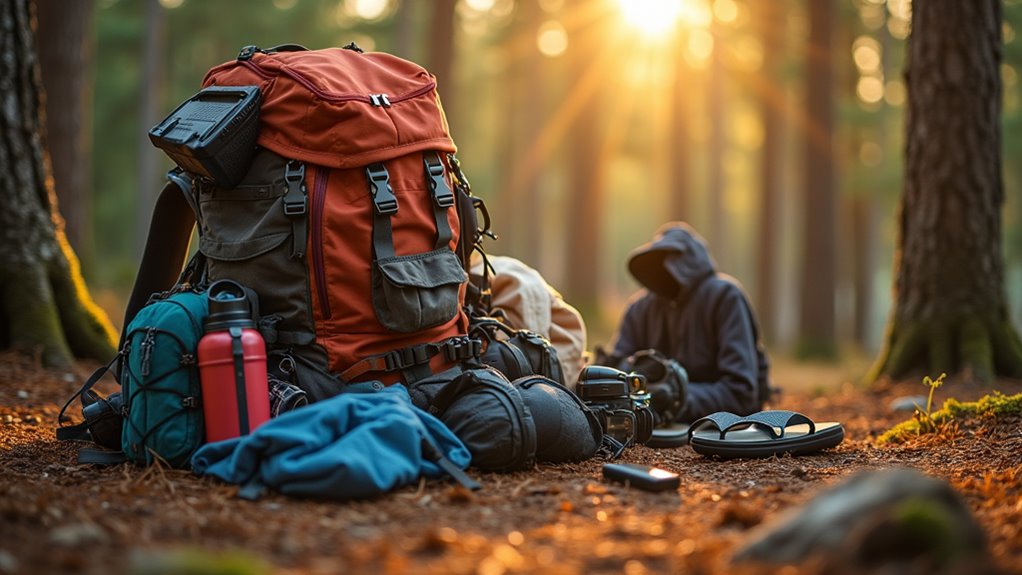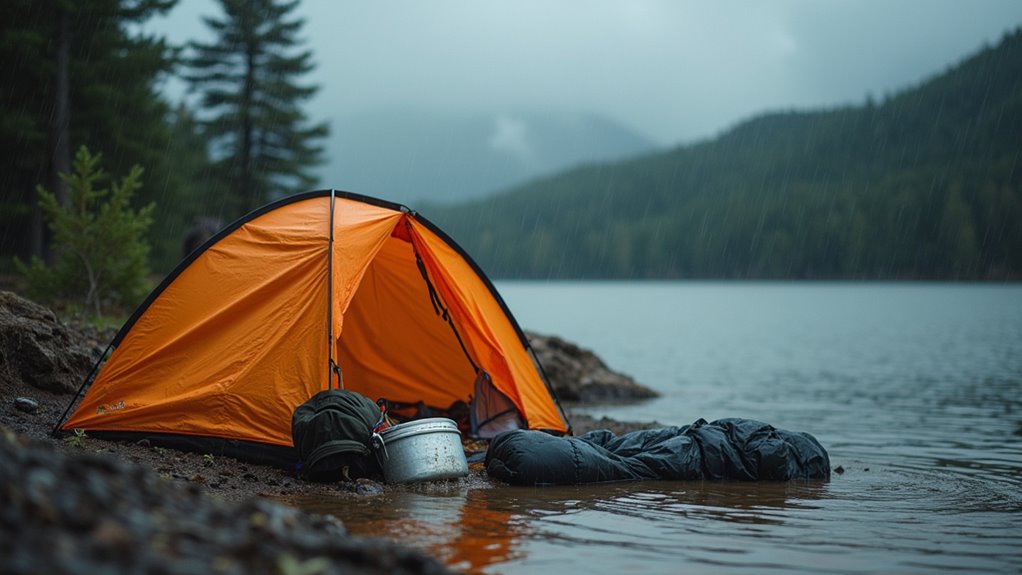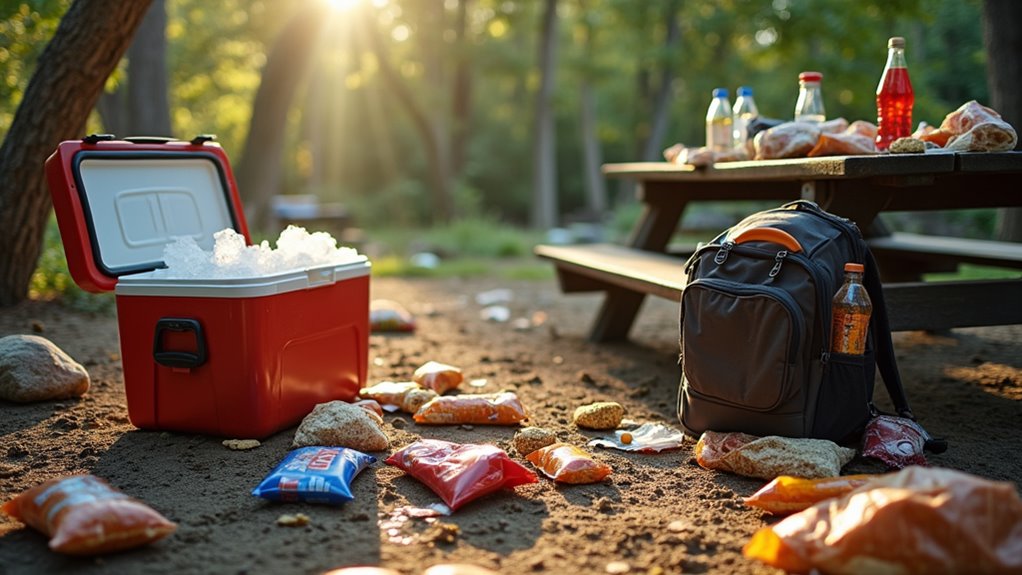Physical Address
304 North Cardinal St.
Dorchester Center, MA 02124
Physical Address
304 North Cardinal St.
Dorchester Center, MA 02124

Before your first camping adventure becomes a cautionary tale, discover the five critical mistakes that turn dream getaways into survival nightmares.
Like Dorothy stepping into Oz without proper preparation, you’re about to enter the wilderness with high hopes and little experience. Your enthusiasm to escape civilization can quickly turn into frustration when basic oversights derail your adventure. These aren’t complex wilderness survival scenarios—they’re simple mistakes that’ll leave you uncomfortable, unprepared, or downright miserable. Before you pack that first sleeping bag, you’ll want to know what separates a memorable camping trip from a disaster you’ll never forget.

When you’re excited about your first camping trip, it’s tempting to throw everything you think you might need into your pack—or go the opposite direction and pack too light because you’re worried about weight. Both approaches create problems you’ll regret on the trail.
Overpacking leaves you exhausted from hauling unnecessary gear. You don’t need five different cooking pots or backup clothes for every scenario.
Underpacking is equally dangerous—forgetting your headlamp, first aid kit, or rain gear can turn a fun trip into a miserable experience.
Create a detailed checklist organized by categories: shelter, sleep system, cooking, clothing, and safety. Start with absolute essentials, then add items based on your specific trip length and weather conditions. The key is finding the right balance that ensures your family camping experience remains enjoyable without being weighed down by unnecessary items.
Your campsite choice can make or break your entire trip, yet many beginners pick the first flat spot they see without considering what makes a location truly suitable.
You’ll want to avoid these critical location mistakes:
Instead, look for slightly elevated ground with natural drainage, protection from prevailing winds, and reasonable distance from water.
Check for overhead hazards like dead branches, and consider sun exposure for morning warmth.
These factors determine whether you’ll sleep comfortably or spend the night regretting your choice.

While experienced campers religiously check forecasts before heading out, newcomers often skip this essential step and find themselves caught in dangerous weather with inadequate gear. You’ll regret ignoring that storm warning when you’re huddled in a soaked tent at 2 AM.
Check weather forecasts up to a week before departure, then monitor daily updates. Don’t just look at temperature—examine precipitation, wind speeds, and severe weather alerts.
Pack layers for temperature swings and waterproof gear even if rain isn’t predicted.
Mountain weather changes rapidly, so prepare for conditions worse than forecasted. Bring extra warm clothing, rain gear, and tarps.
If severe weather’s approaching, postpone your trip. Your safety trumps camping plans every time.
Plus, invest in reliable fire starting equipment that works in wet conditions, as getting a fire going becomes exponentially harder when everything is soaked from unexpected rain or snow.
Although most campers pack their gear carefully, many forget the crucial step of testing everything at home before departure. You’ll save yourself major headaches by checking each item beforehand.
Here’s what you should test:
Don’t assume everything works because it’s new or worked last season. Equipment fails, parts go missing, and batteries die.
Testing at home gives you time to fix problems, buy replacements, or learn proper setup techniques. You’ll arrive at camp confident and prepared.
Plus, pre-testing your gear helps you identify any gaps in your bug prevention supplies before you’re already dealing with mosquitoes and other insects at your campsite.

Even experienced hikers can underestimate how much food they’ll need or forget proper storage methods when car camping. You’ll want to plan meals ahead and pack extra snacks—hunger hits harder outdoors.
Don’t rely on campfire cooking alone; bring backup options like a portable stove.
Store food in hard-sided coolers or bear-proof containers, never in your tent. Ice melts faster than you think, so pack frozen water bottles as backup cooling.
Keep raw meat separate and bring a thermometer to check temperatures.
Plan simple, one-pot meals that require minimal cleanup. Pre-cut vegetables and marinate proteins at home.
Pack aluminum foil, ziplock bags, and wet wipes for easy meal prep and cleanup.
Always bring more water than you think you’ll need.
If you’re planning a camping trip that includes fishing, consider whether renting or buying a boat makes more sense for your specific needs and budget.
Did you know that 67% of new campers quit after their first disappointing trip? Don’t become part of that statistic. You’ve now got the knowledge to avoid these five critical mistakes that derail most beginners. Pack smart, choose your campsite wisely, check the weather, test your gear, and plan your food properly. These aren’t just tips—they’re your ticket to joining the ranks of confident campers who can’t wait for their next adventure.